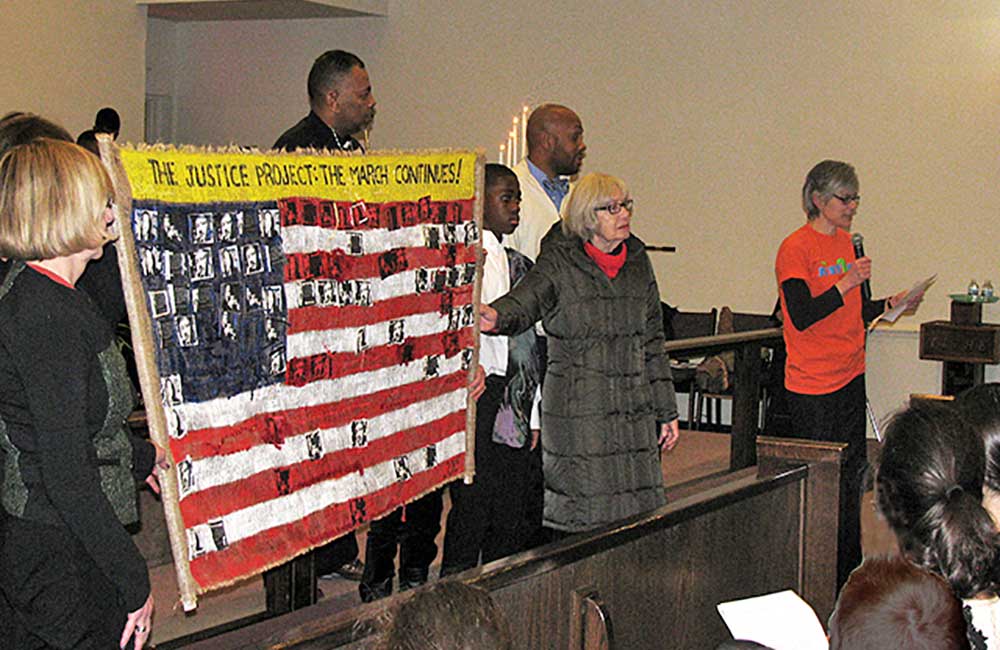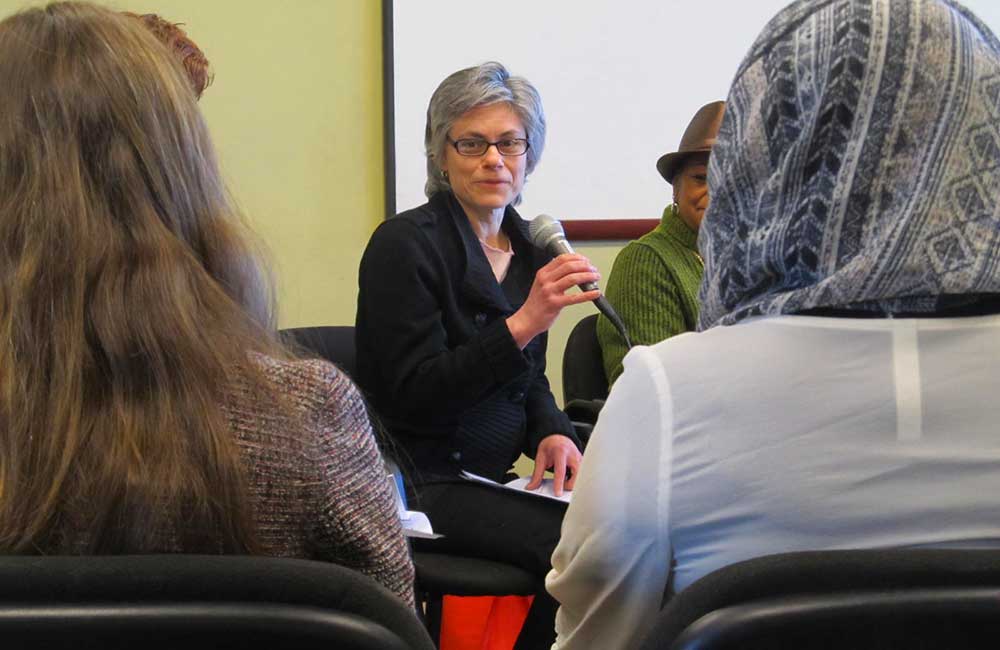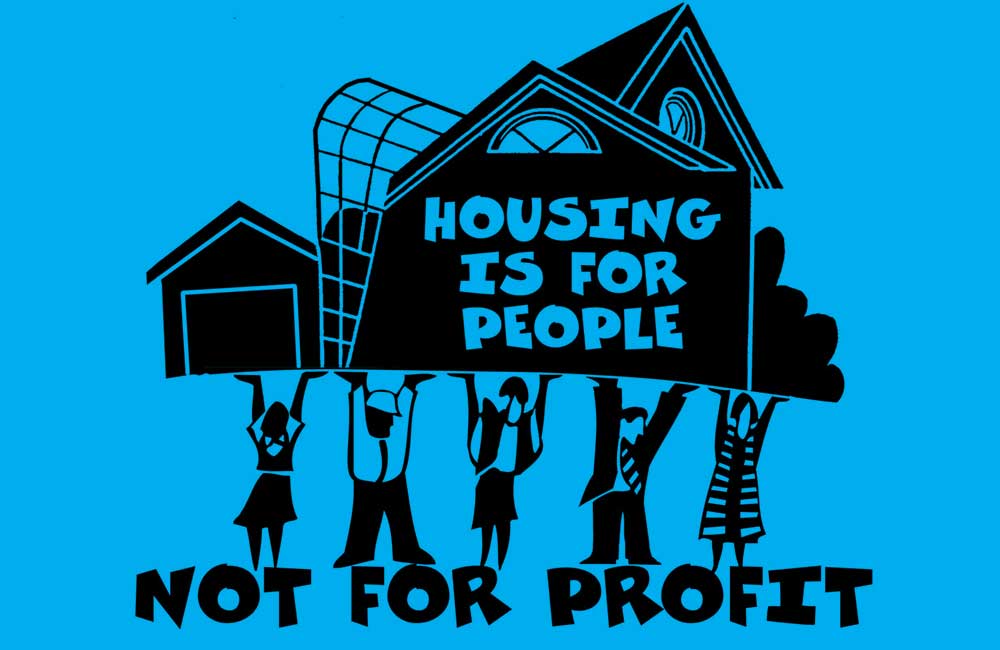Inclusive & Diverse Communities: A Holistic Approach
Over three decades of grassroots organizing, including twenty-two years at the helm of a social justice organization, convince me that individuals are motivated to political action not solely by self-interest but by an inner, moral conviction to care for others.
I have also seen the transformative potential of having a clear vision, whether it is for a small piece of land or for the role of government, in mobilizing people and catalyzing action. This is most strongly felt when when that vision is owned by the people who conceived it.
It is for this reason that I share the credo of popular educator and civil rights leader Myles Horton: “If I had to make a choice between achieving an objective and utilizing the struggle to develop and radicalize people, my choice would be to let the goal go and develop the people.”
In my experience, a “punchlist” approach to public policy, especially when it comes to regulating relationships ranging from real estate transactions to communications with the police, is insufficient. While local governments certainly need to promulgate and uphold laws that ensure that everyone’s civil rights are respected, at bottom lasting change beyond individual terms of office derives from a culture of “love thy neighbor as thyself” – a culture of trust over fear that is embraced by the majority of residents. That culture of community creates its own peer pressure.
To provide an illustrative example, in 2014, inspired by the “We Are The 99 Percent” movement, I supplemented the housing justice advocacy of Open Communities, the Chicago-area organization I directed from 1993-2016, by creating a blog, We Are The North Shore, intended to simultaneously instill internal pride in the area’s diversity and invite people of all backgrounds to consider a move to the region.
Embracing this vehicle for promoting community, the City Council of Highland Park submitted its own post to the blog in October 2015. In its social media, the Council announced that it “signed on to join Open Communities’ ‘Welcome Movement’ to foster welcoming, inclusive and just communities across the North Shore.” Highland Park is a community that has been challenged by an external reputation of exclusivity and affluence at the same time that it put in place innovative mixed-income housing policies and programs over a decade ago. Although it may seem innocuous, this “We Are the North Shore” submission supplements and culminates Highland Park’s efforts to build inclusive housing and cultivate the leadership of its growing Latino community; and it responds to grassroots efforts coming from its residents, business and religious leaders to create the foundation for a “new” Highland Park reputation that is built on social equity.
The point is to “develop the people” on an ongoing basis. Essential to this is shaping an inviting and enlivened community that in fact becomes an amalgam of residents already in place and the gifts that the new residents bring. Issues will come and go. My philosophy is that those issues must always be connected one a single, meta-idea, and that is the inviting and just community. In practice, whether the group “wins” or not on any given issue, the fact that they are consistently interacting – working, playing, planning – develops a culture of community.
Building a Culture of Inclusion
Nationally, organizations such as Welcoming America, Race Forward, Policy Link, and
AARP in its adaptation of the World Health Organization’s Age-Friendly Communities program, are providing well-crafted tools for public proclamations, policy creation, review of practices, and outcome measurement when it comes to universal fairness and social equity with a level detail akin to environmental impact statements. In 2015, the U.S. Department of Housing and Urban Development (HUD), recognizing that housing segregation is tied to discriminatory practices that, while made illegal decades ago, have lasting effects pervading all aspects of social life, promulgated new rules with “clear guidelines and the data” requiring all communities that receive HUD funds to show that they are affirmatively furthering fair housing “because no child’s ZIP code should determine her opportunity to achieve.” This includes an explicit citizen participation component.
But none of these approaches involve a cultural change in which residents embrace the spirit as well as the letter of the laws. I offer grassroots organizations, congregations, civic groups, coalitions and municipalities of any size supplemental hands-on assistance in:
1. Bringing about political and community consensus around policies and programs that promote or uphold racial, economic and social equity;
2. Bridging the gap between aspirational goals and practice through promoting transparent and cooperative processes and education; and
3. Creating community through activity of all kinds – meetings and meet-ups, celebrations, art projects, theater, to name a few ideas.
I can offer:
- On-the-ground organizing of local residents of diverse backgrounds around issues of concern to them touching on inviting and sustainable communities – for example, the disposition of a land parcel, how to increase housing for people with disabilities, stopping racial profiling, or fostering entrepreneurship among immigrants – short-term campaigns with the long-range goal of building and sustaining community;
- Coalition-building across issue areas, and innovative civic engagement ideas such as government-resident committees to grapple with seemingly intransigent and controversial issues (I served on one such committee in my own community of Skokie around rental housing oversight);
- Popular research as residents seek to understand their community’s long-range plan or the thinking behind certain policy proposals;
- Training and hands-on help for fostering and maintaining a culture of community; and
- Connecting those involved with appropriate partners, financial, legal and other resources as necessary to support the campaign.
I bring over thirty years of policy research and advocacy, civic engagement, community organizing, and agency leadership experience to bringing about just, inclusive, sustainable, and diverse communities.





